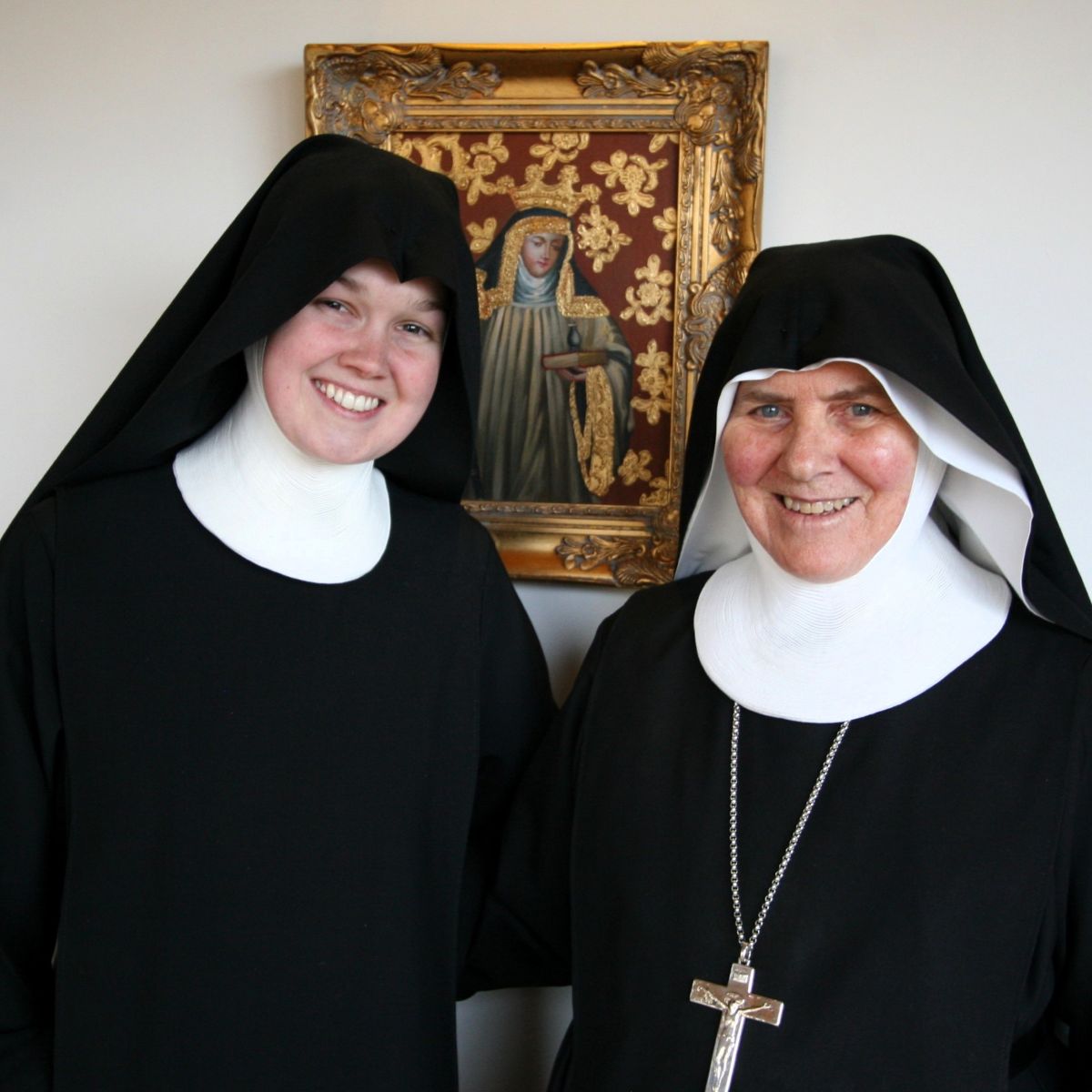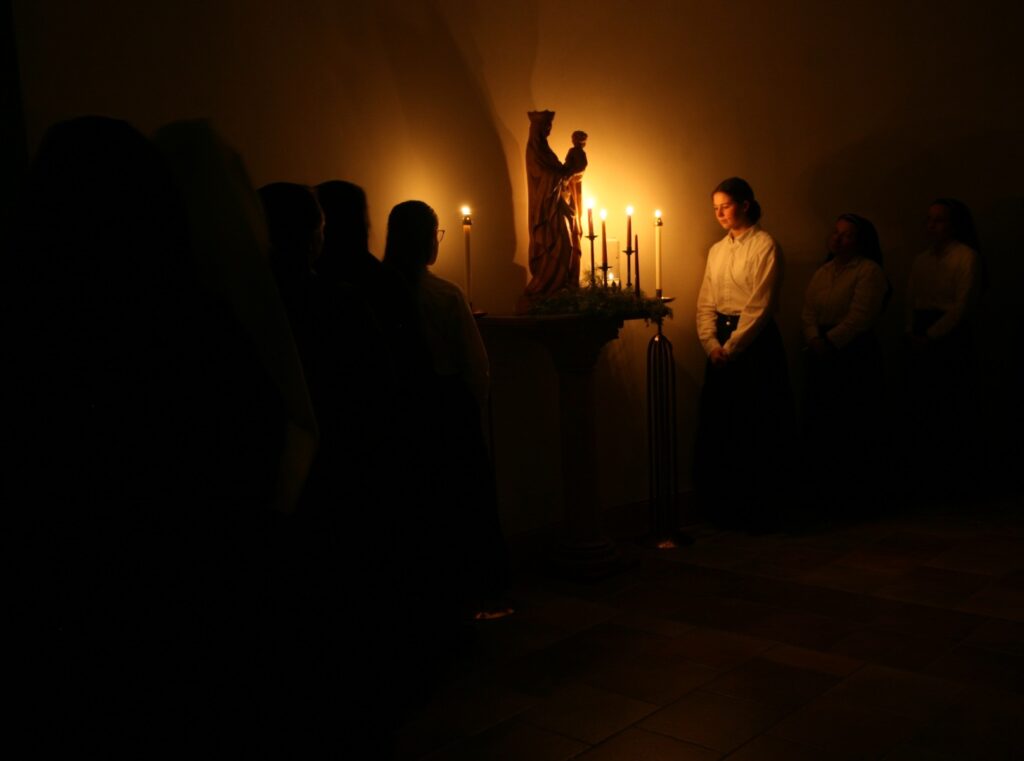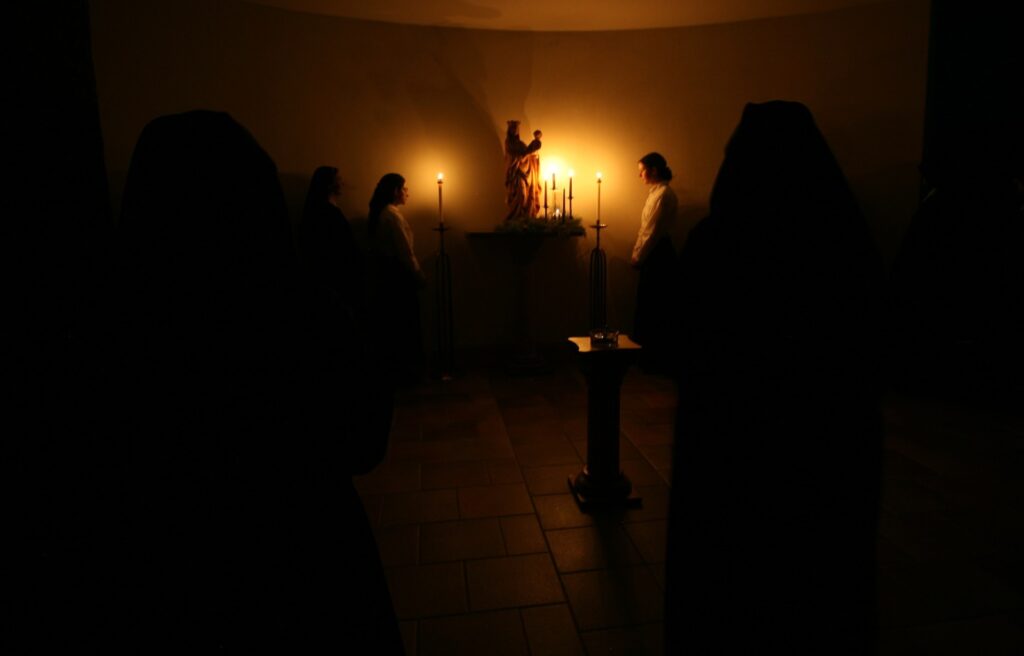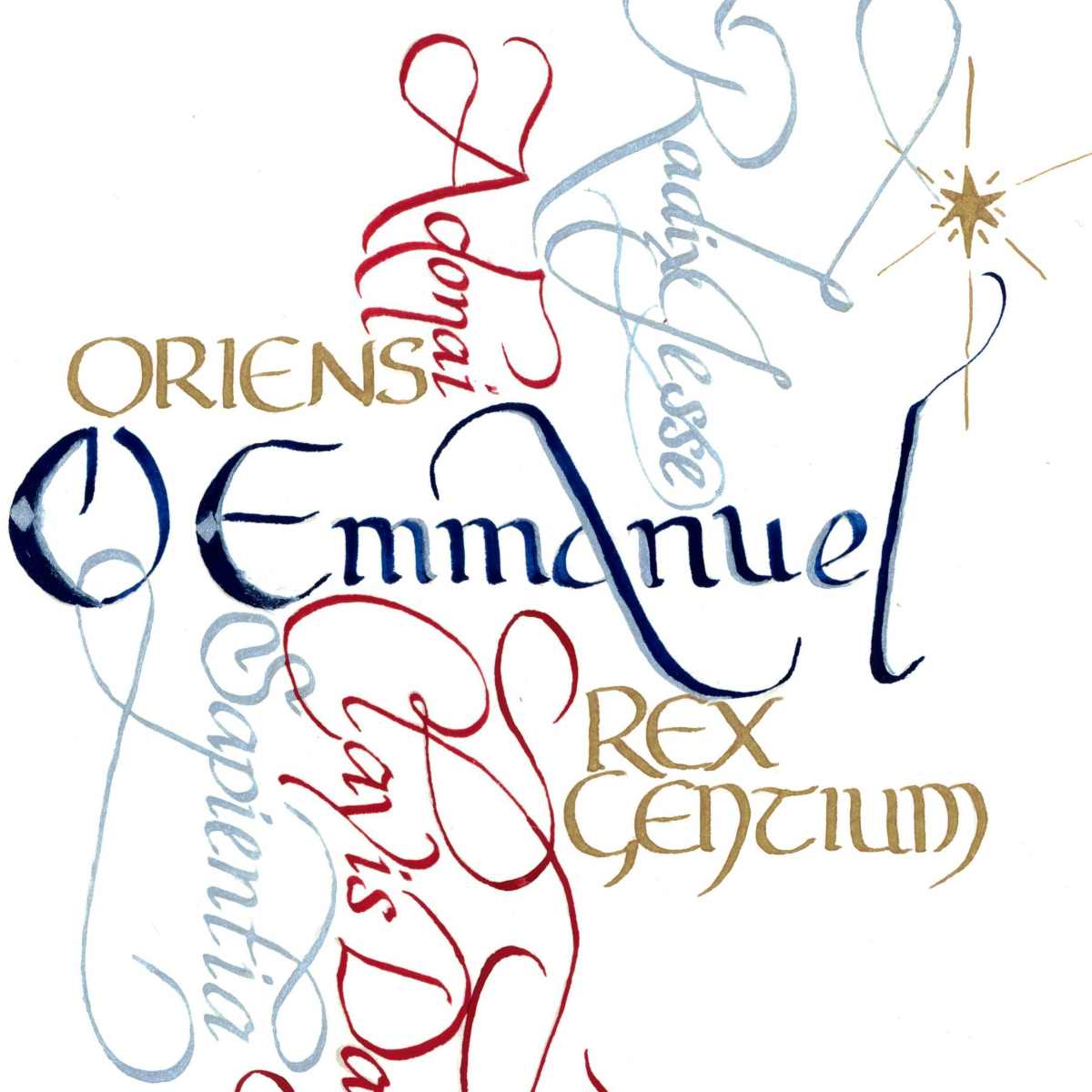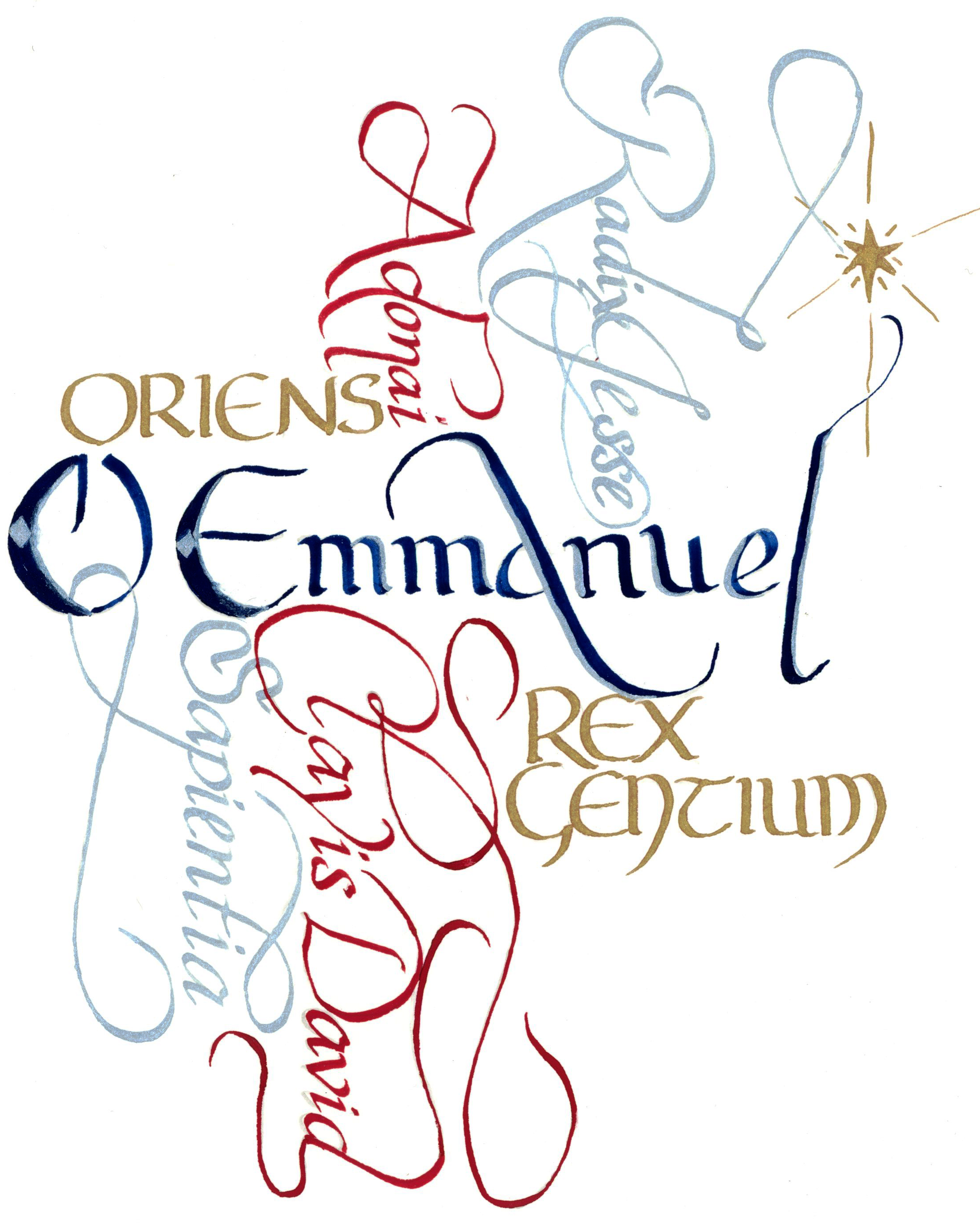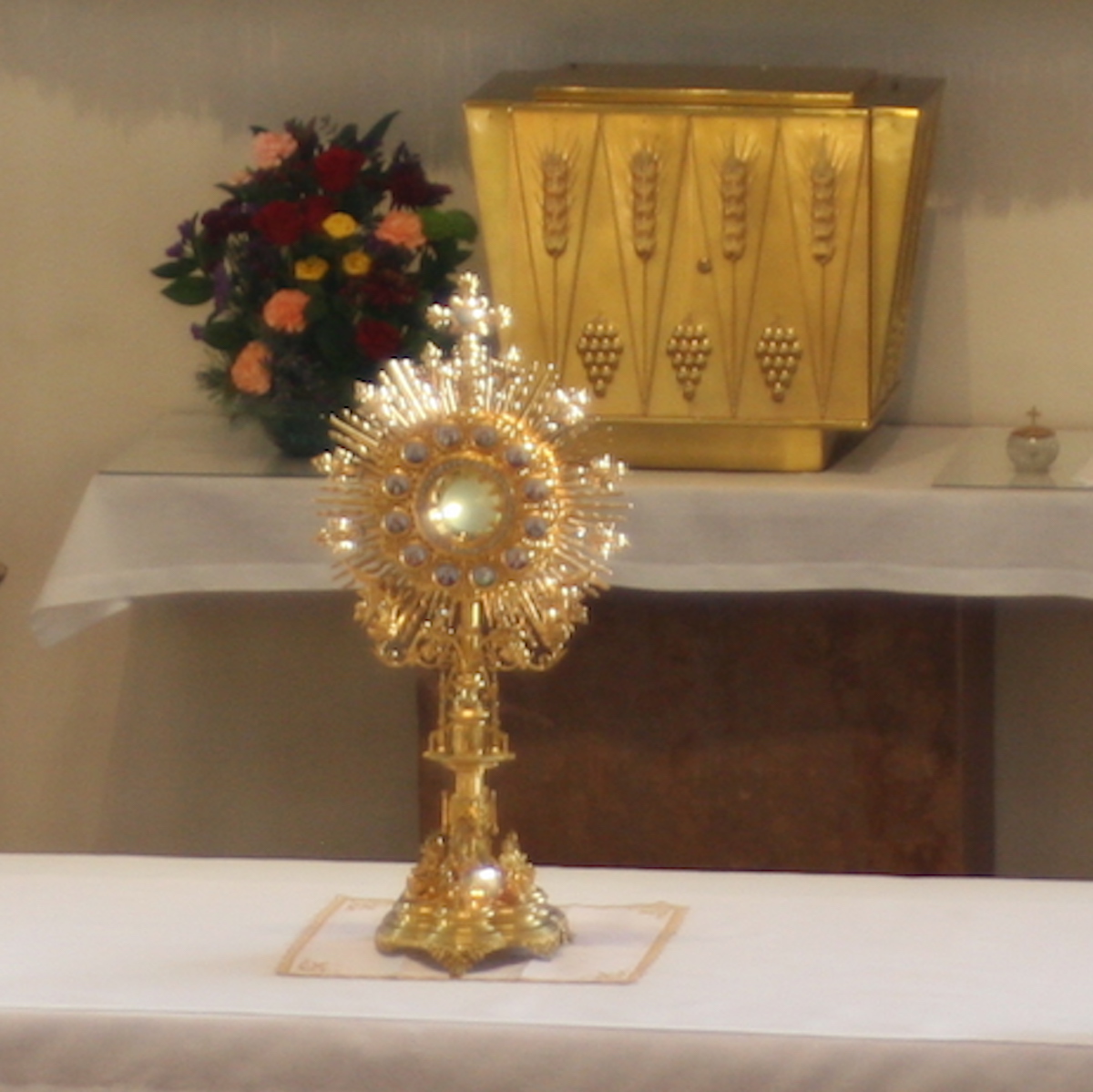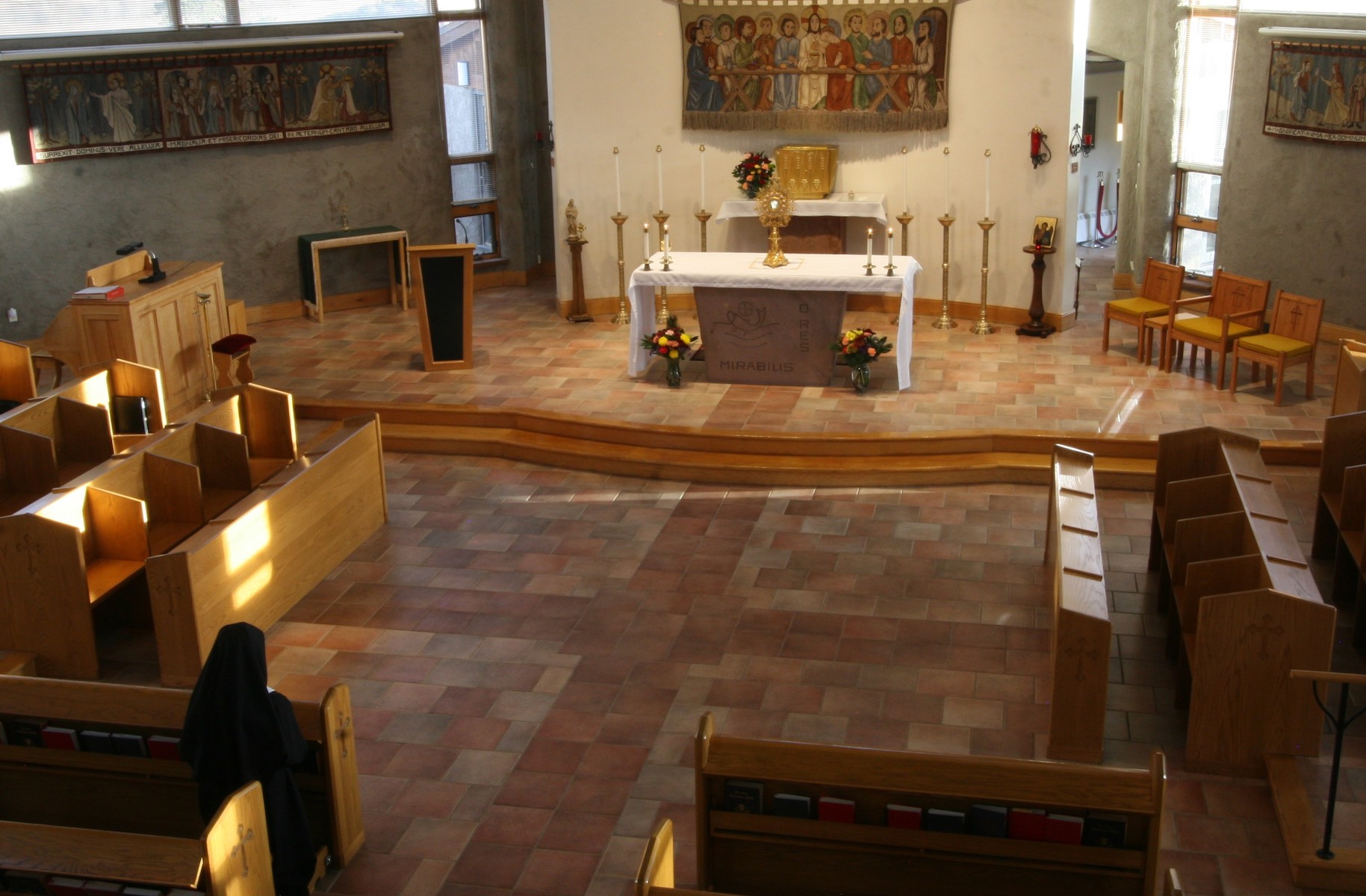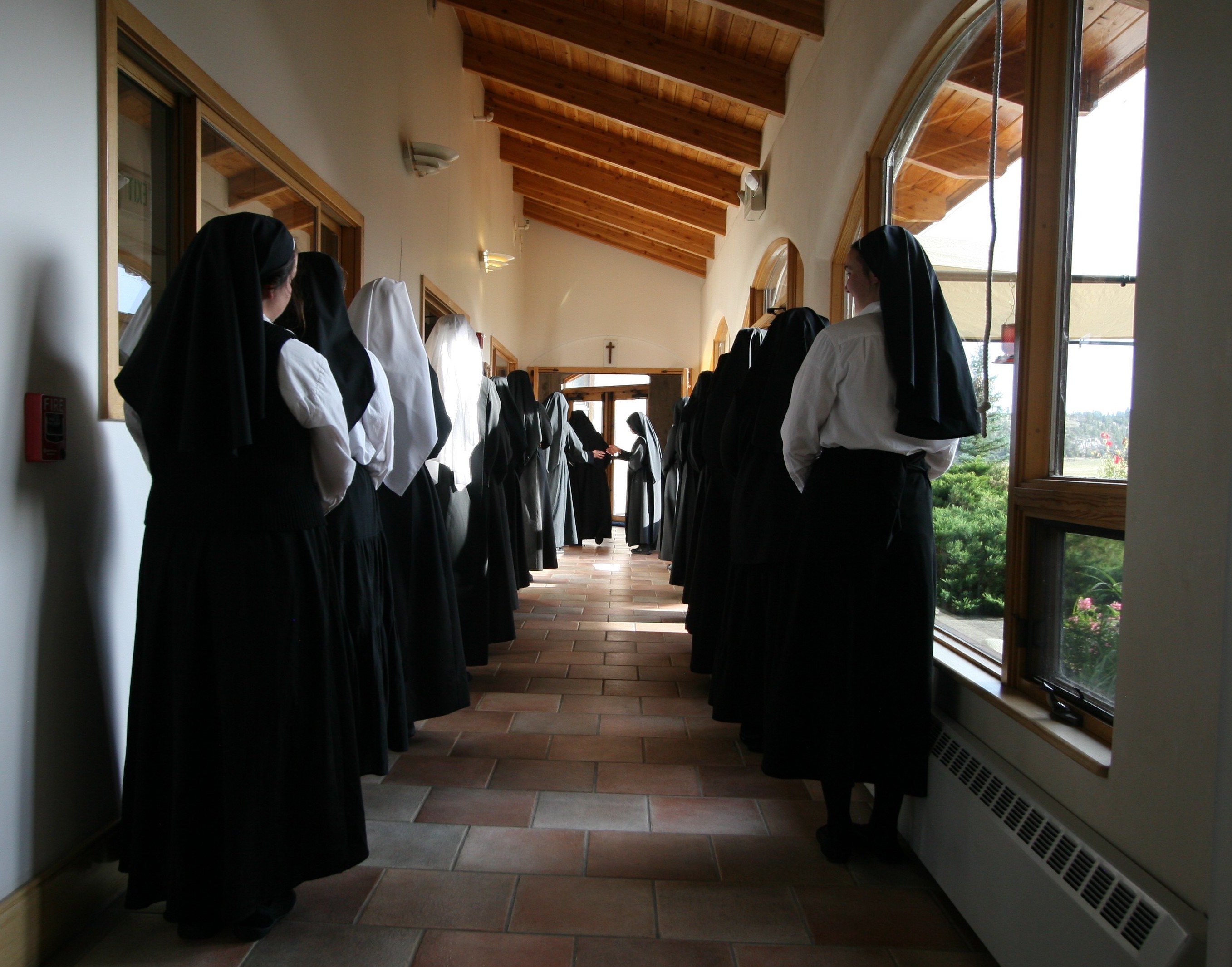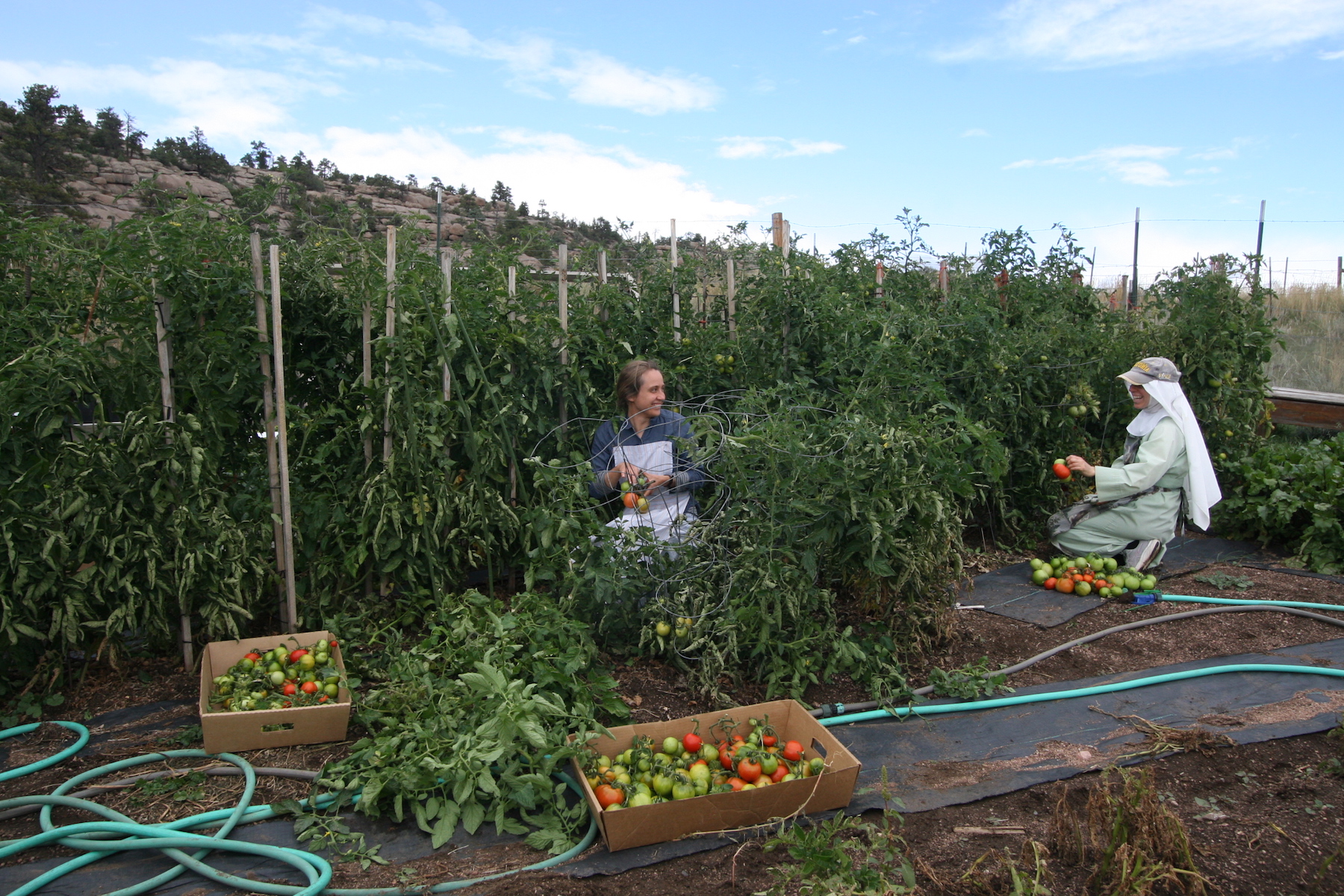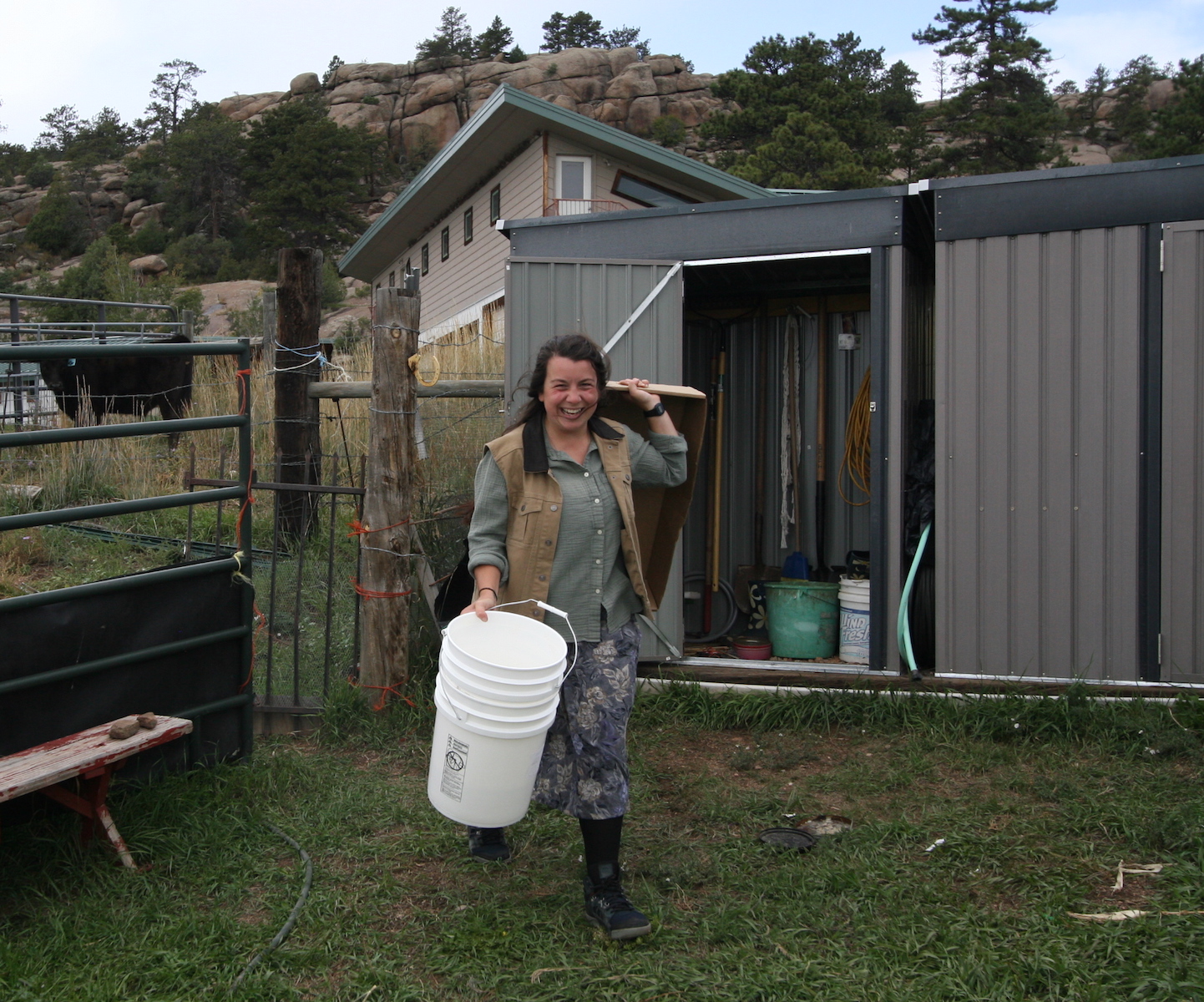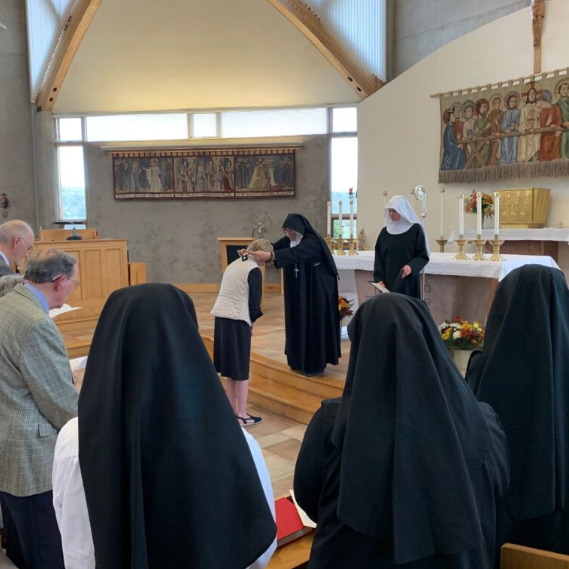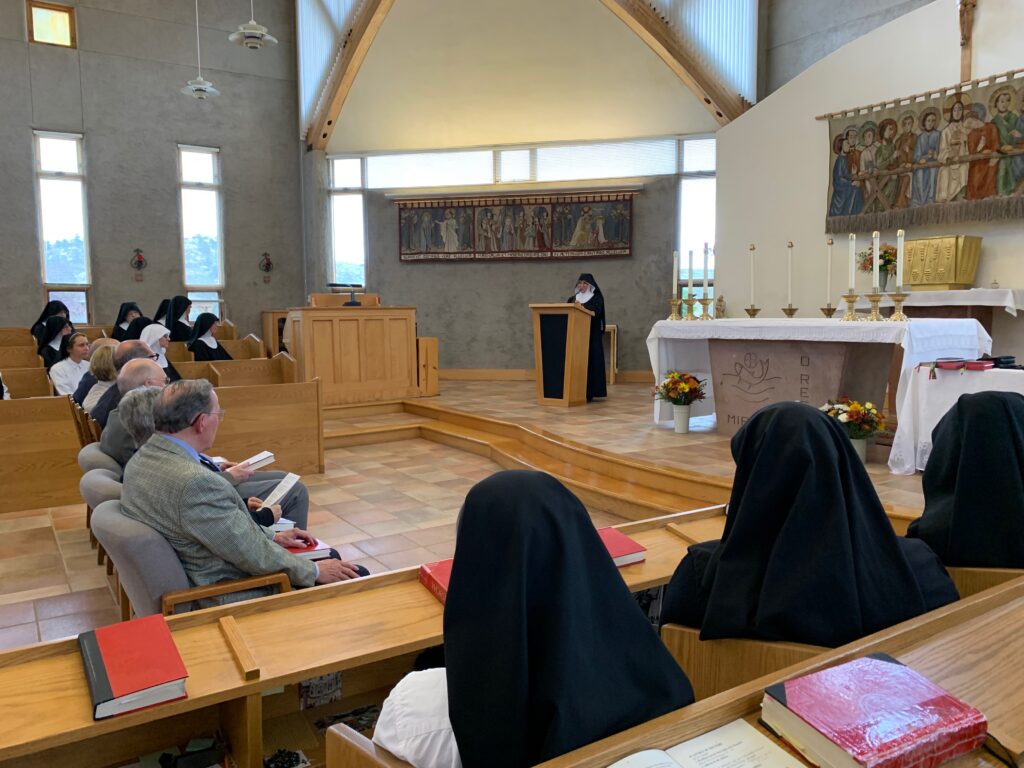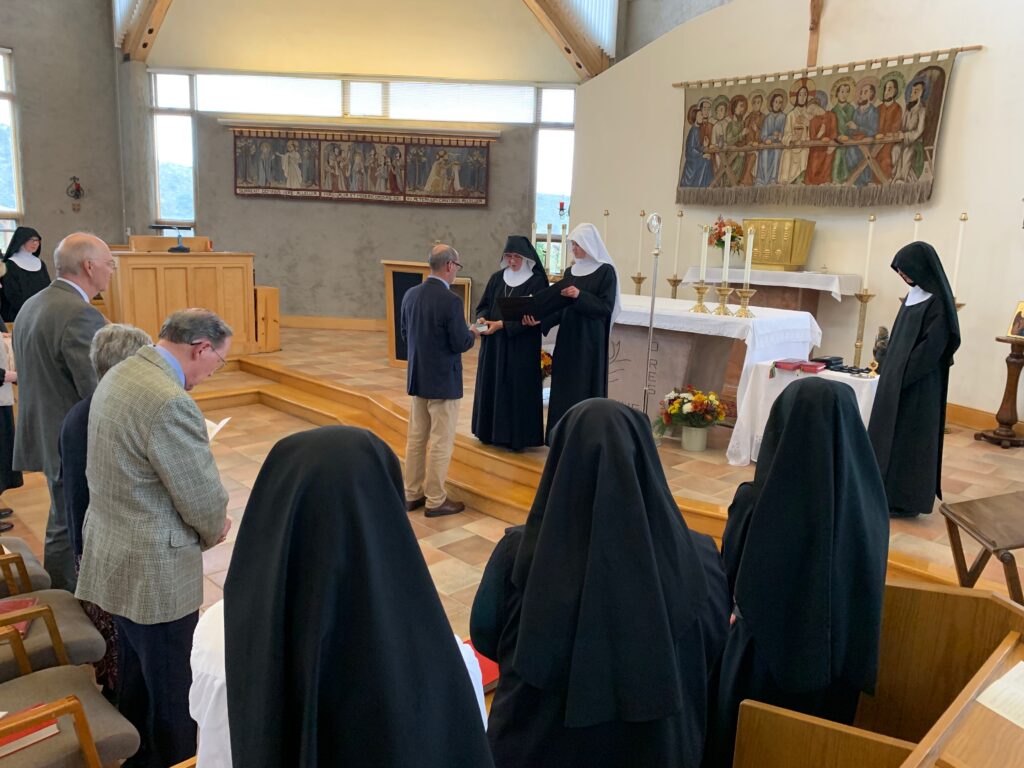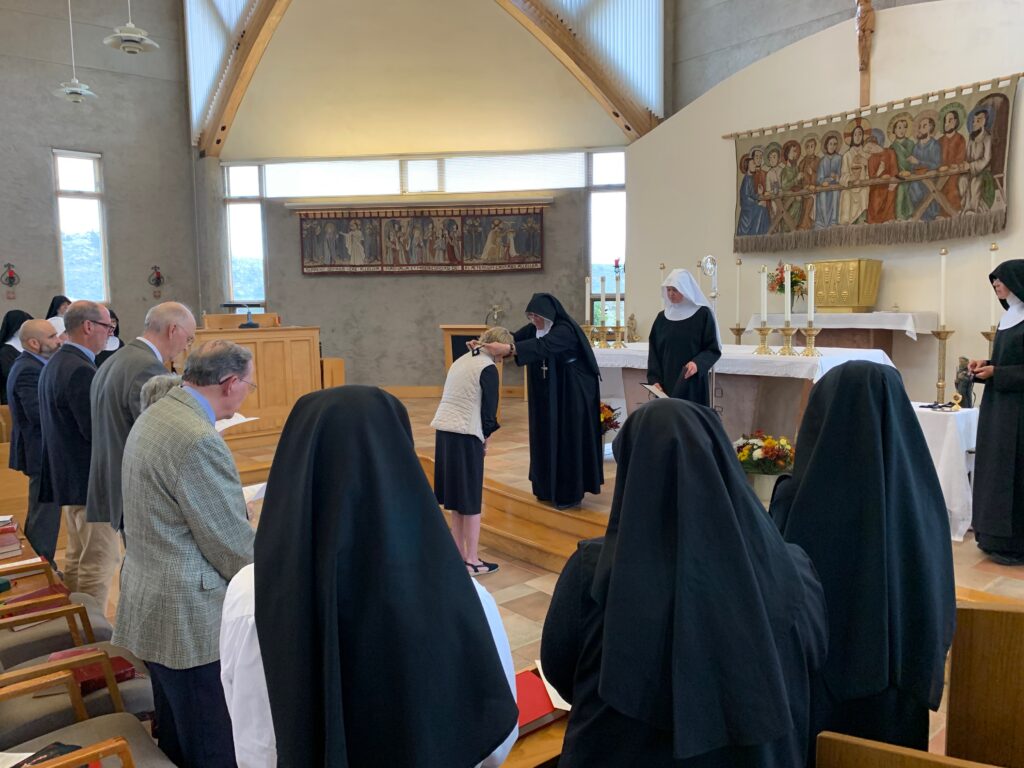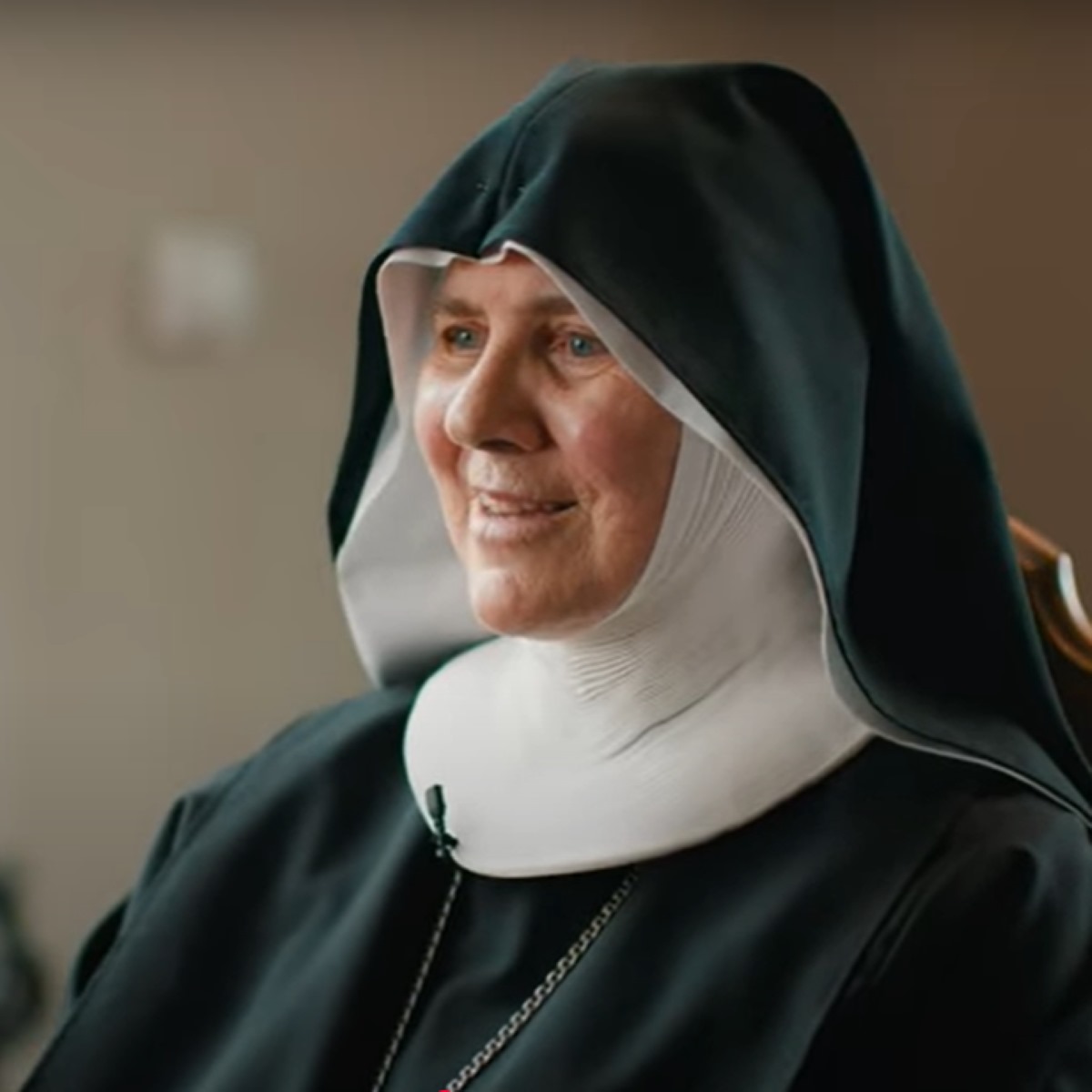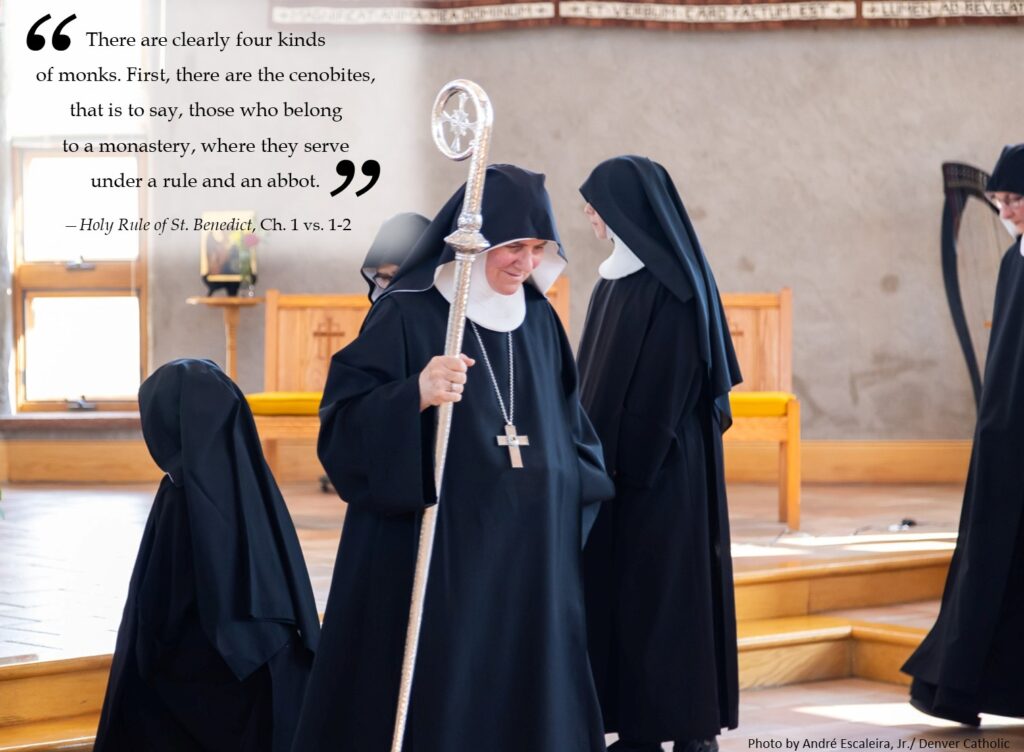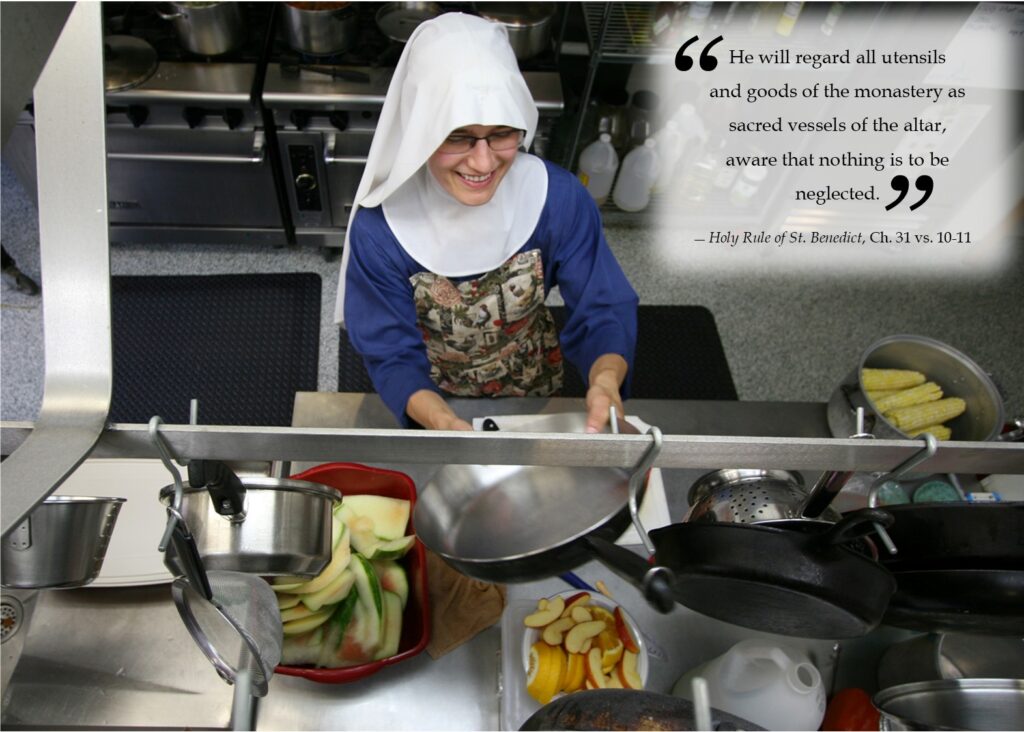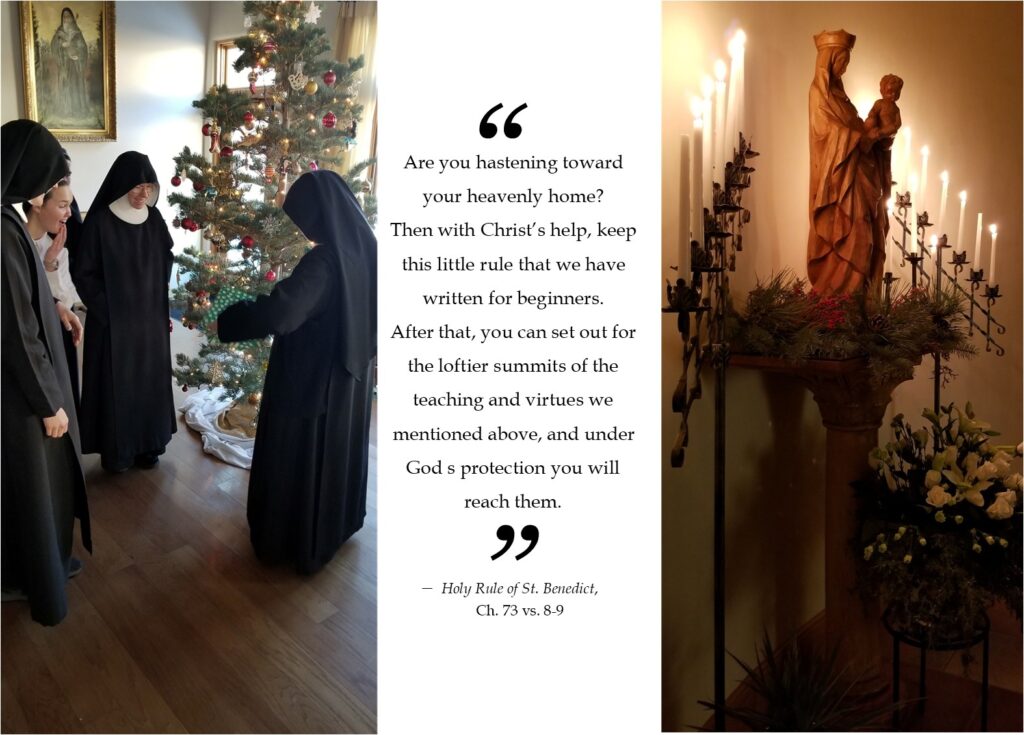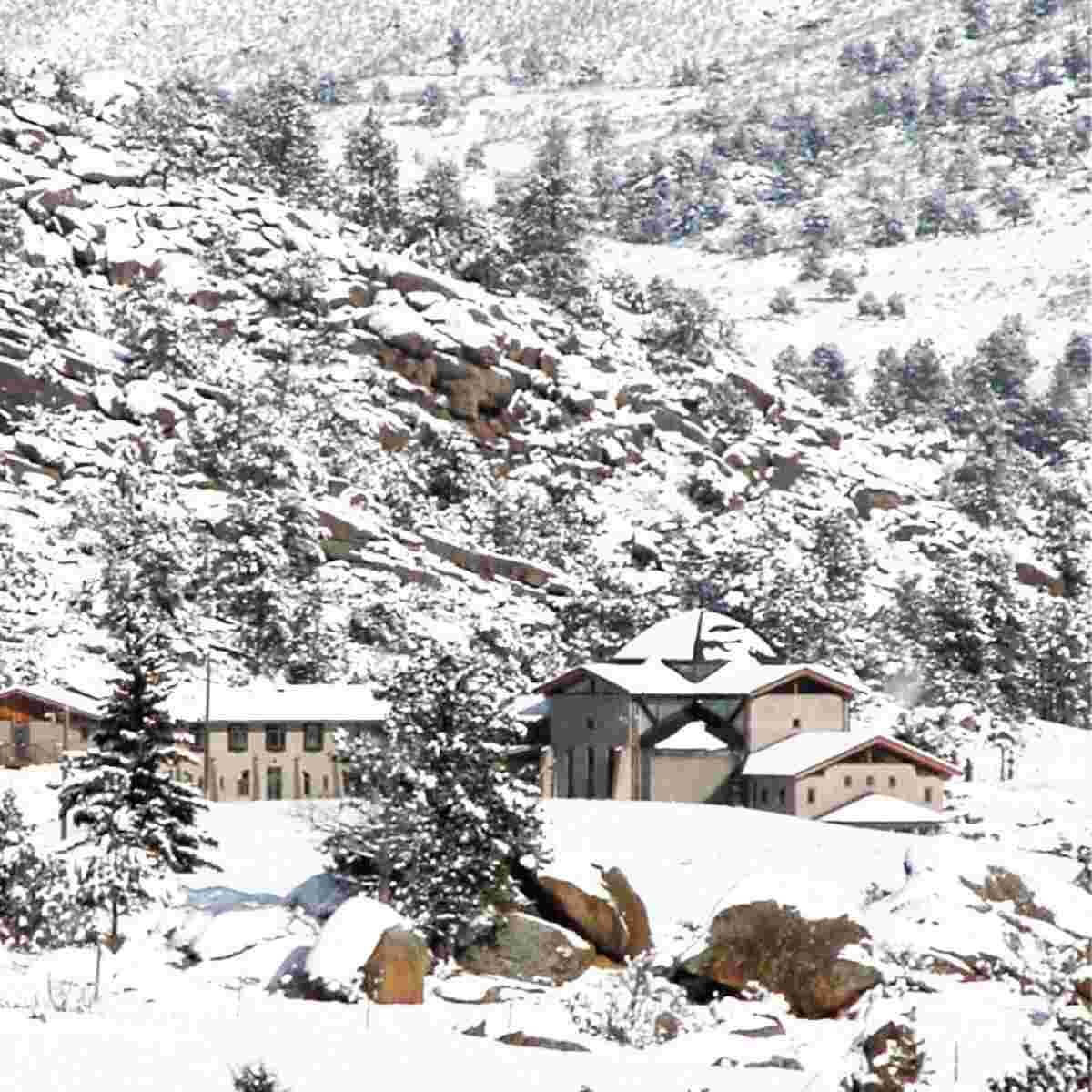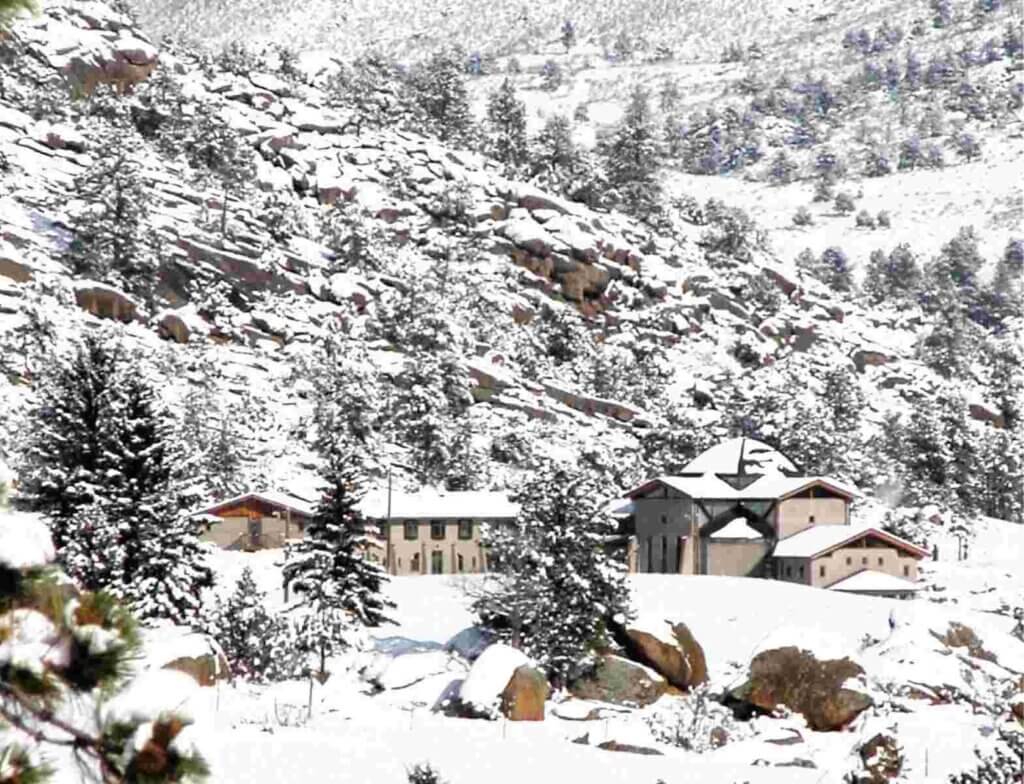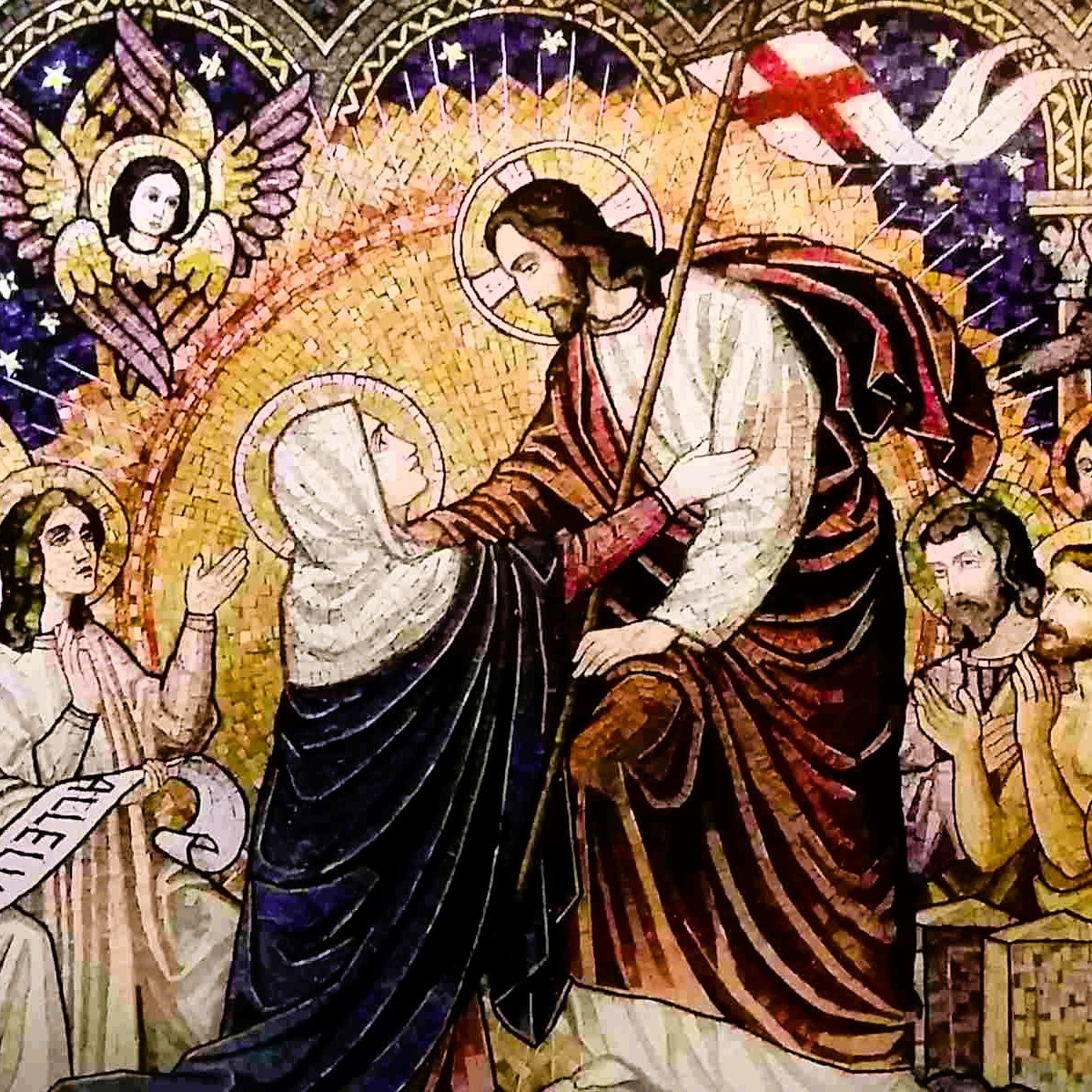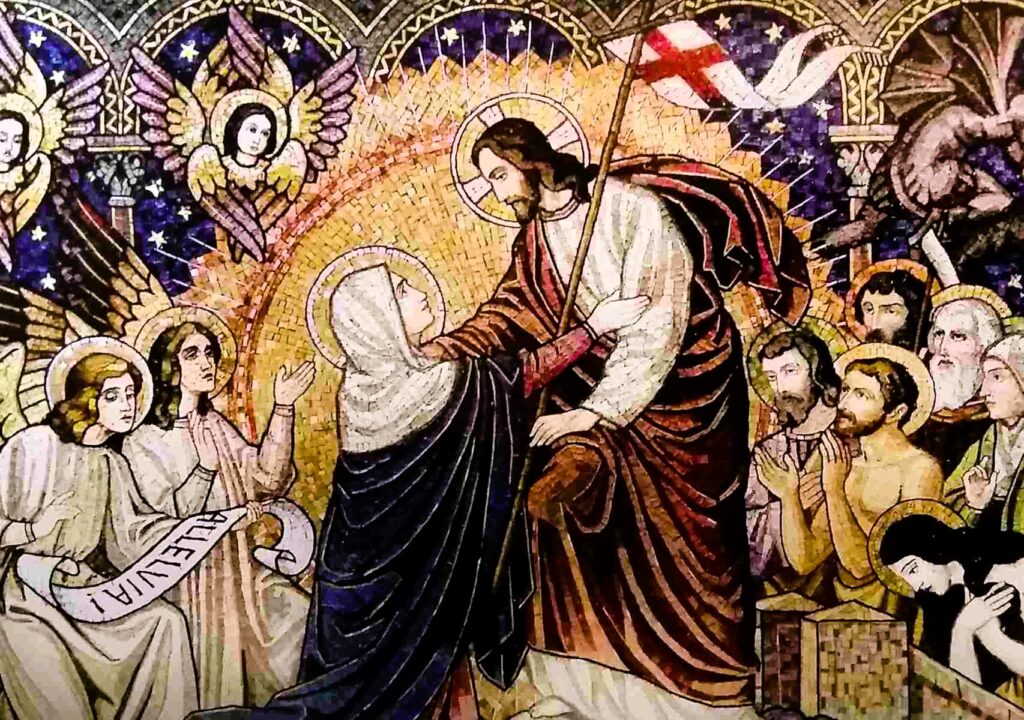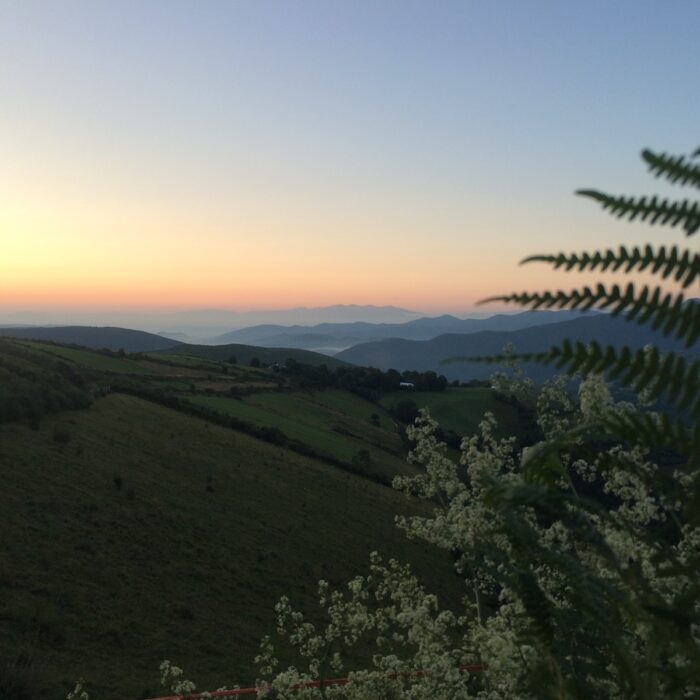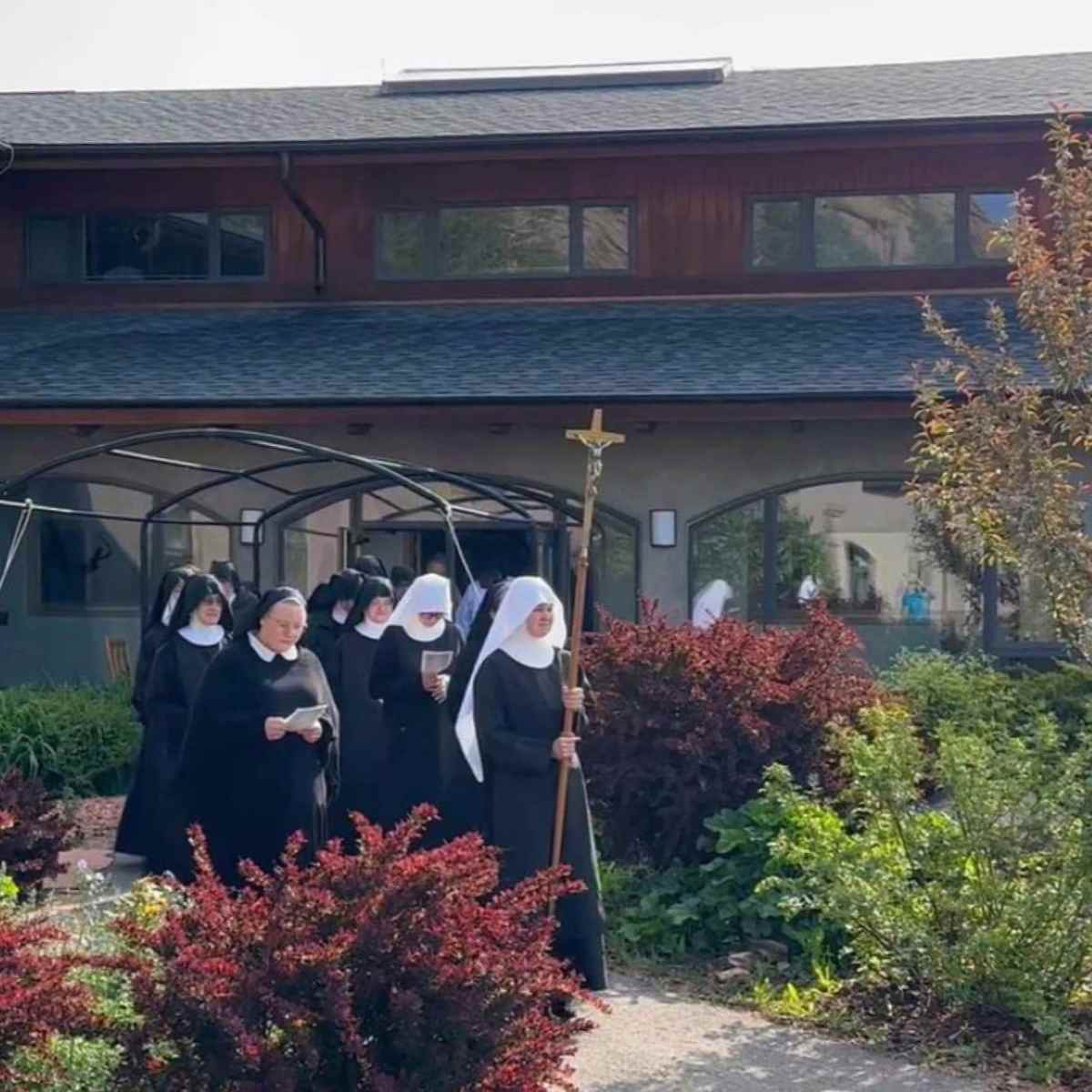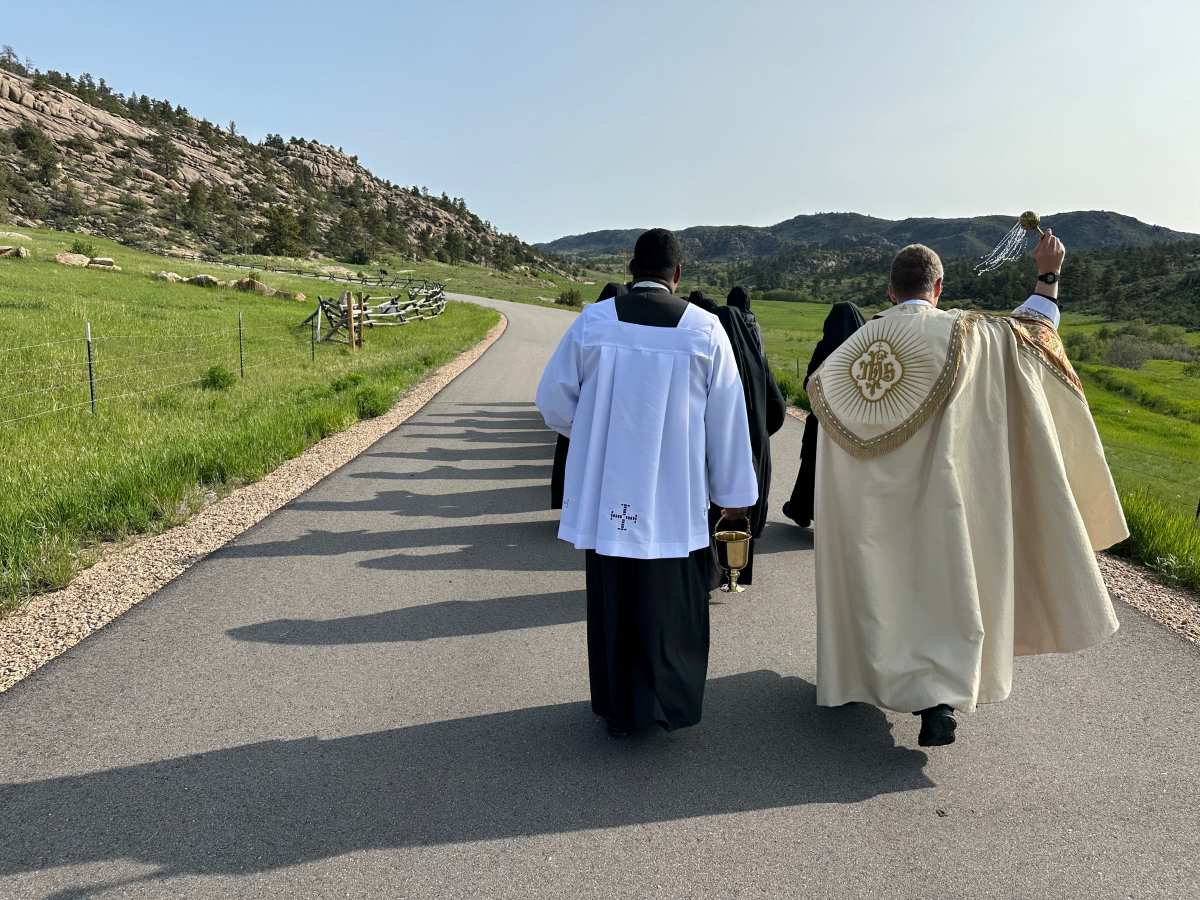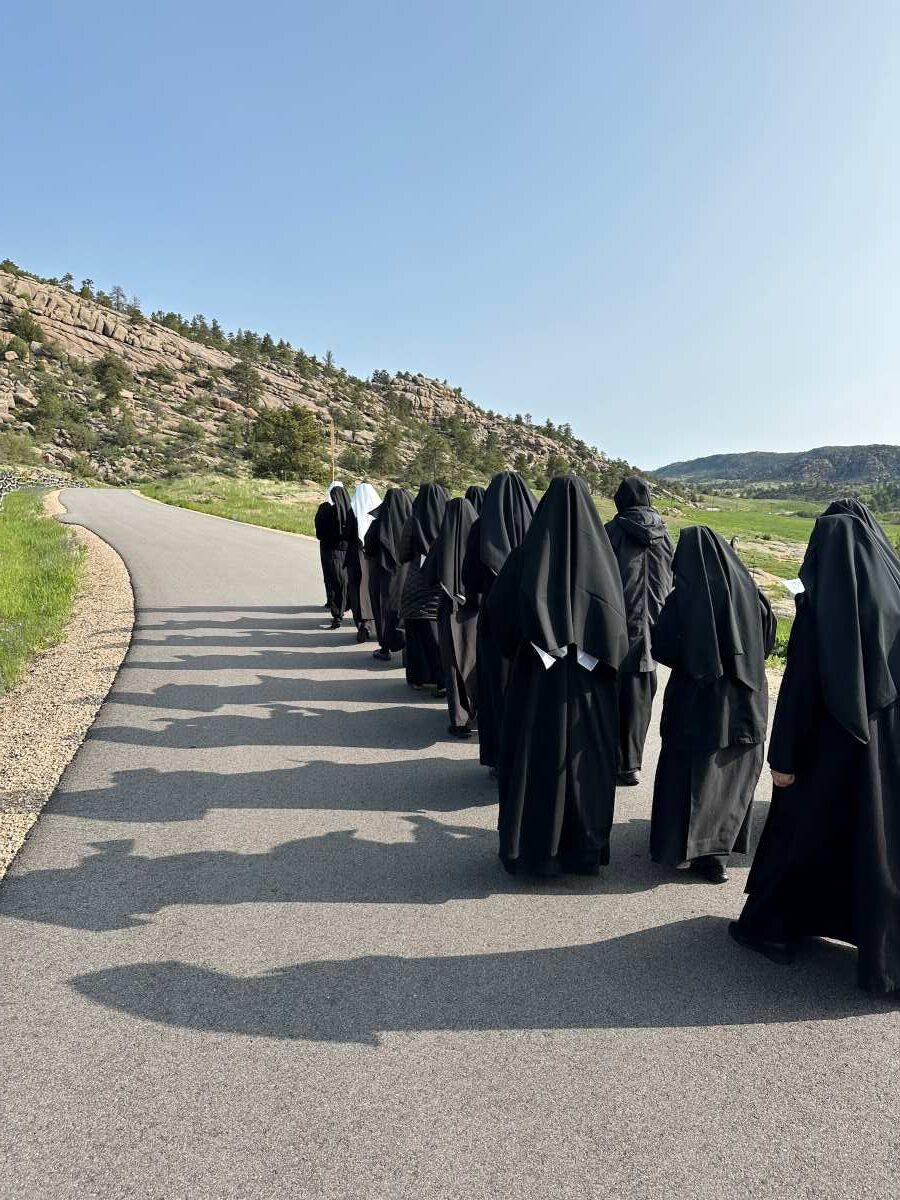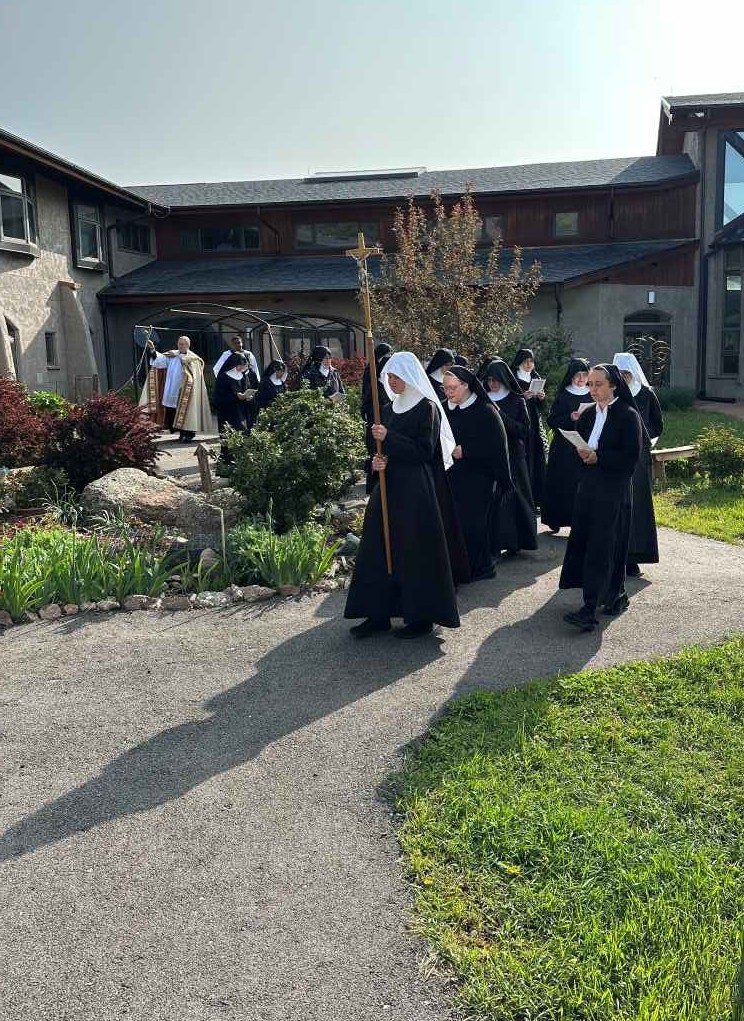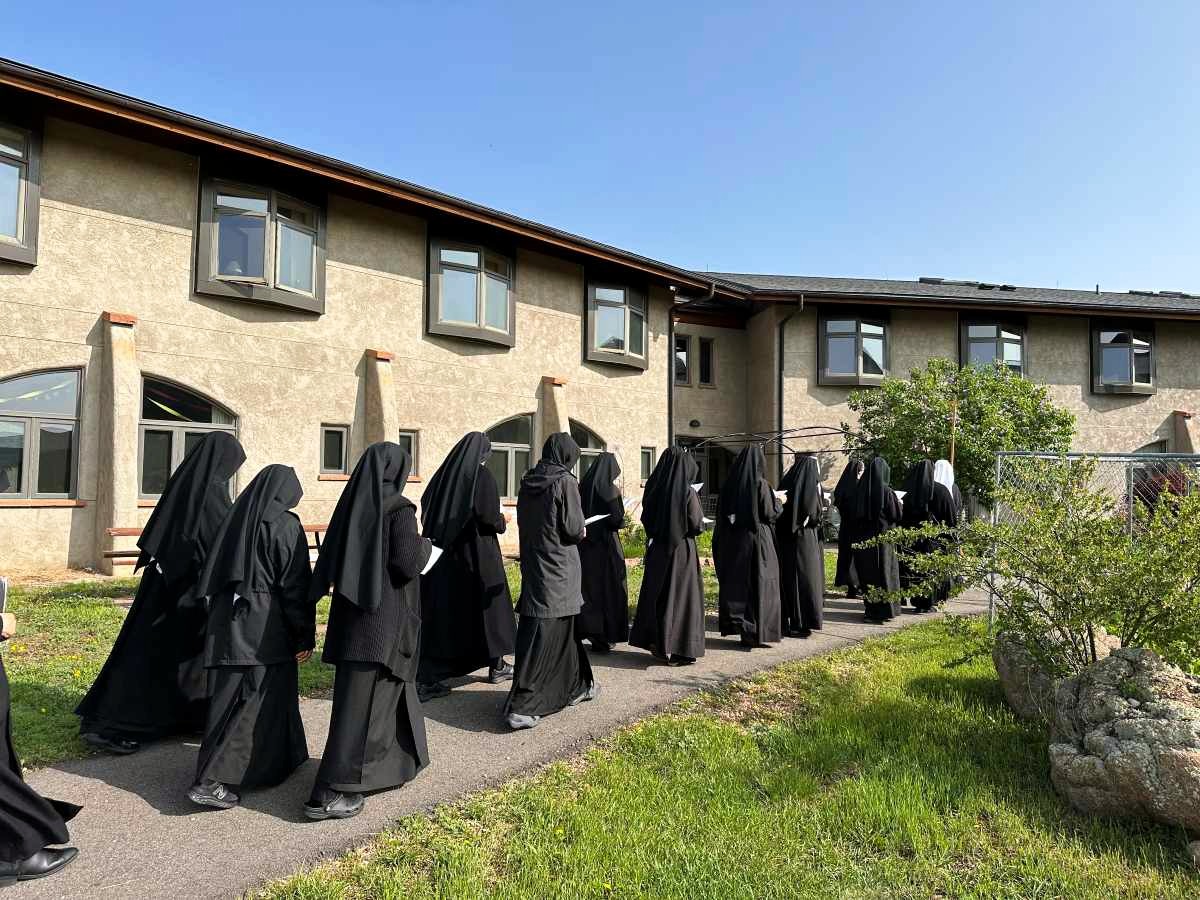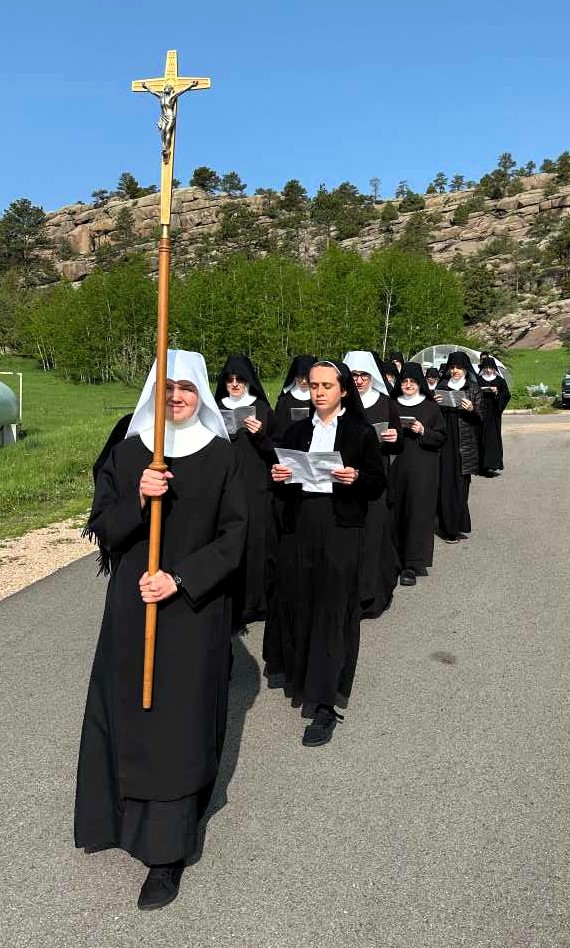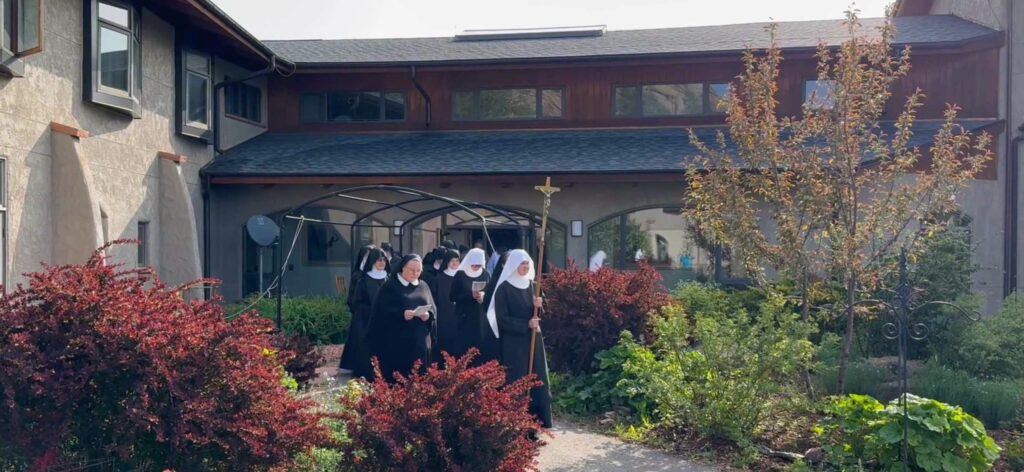Celebrating Sister Cecilia’s First Profession

In this season of joyful anticipation, our community celebrated the First Monastic Profession of Sister Clare, who received the name Sister Cecilia on the Solemnity of the Immaculate Conception (December 8, 2025). She professed stability, fidelity, and obedience to the monastic way of life for the next three years, to be renewed annually until Solemn Monastic Profession.
This Advent, we pray that God would enkindle in Sister Cecilia’s heart an ever-growing love for the sweet yoke of Christ according to the Rule of St. Benedict. In that same spirit, Mother Maria-Michael, OSB, delivered an address on November 29, inviting us to keep the Advent flame alive in our hearts with vigilance in prayer and service. Below is an abridged version of her reflection.
Staying vigilant
Advent is really the life of the monk. It is what we are all about: being vigilant and being ready.
In the Divine Office, we read, “Sober, just, and godly we live in this world as we live in blessed hope for the glorious coming of our mighty Savior, Jesus Christ. Let us be concerned with inspiring each other to love and do good works” (Titus 2:12-13). That is a holy community! That is one that is truly seeking God and not self.
Likewise, in today’s Gospel, Jesus offers us a timely exhortation:
Beware that your hearts do not become drowsy
Luke 21:34-36; emphasis added
from carousing and drunkenness
and the anxieties of daily life,
and that day catch you by surprise like a trap.
For that day will assault everyone
who lives on the face of the earth.
Be vigilant at all times
and pray that you have the strength
to escape the tribulations that are imminent
and to stand before the Son of Man.
He does not say that we “become drowsy because we have been working hard.” It is not a surprise that we are tired. It is not a surprise that sometimes we feel a little worn out. We should! We are putting everything into the life we are living. That is the gift we give to God. Sometimes getting up for Matins is hard, but that is the choice of one who is vigilant — one who is waiting for God.
That is the Gospel we should keep before ourselves this Advent. We have to live with vigilance.
The fire of unity
I have been thinking so much about the fire of the early Church — the love with which they lived their lives. They were aflame. They were standing strong, and they were truly one. They loved the Church.
And I pray that we, too, reclaim again that love. We should be like a community keeping the Easter fire going — the Easter fire from the beginning, the first Easter fire that shot fire into the world.
We should keep Advent as precious as the Easter fire. And let us be that fire for the Church. We need to be the sparks that make everything go afire. It only takes a spark to start a forest fire — that is all it takes. But what if we are a torch?
We have to live with great love for the Church.
How relevant this is for our day! We are not called to tear the Church apart. We are called to trust in God, and we are called to unity in obedience to the Church. And I would ask that we pray specifically for the Church this Advent. It does not need to be torn apart — and, quite frankly, a lot of schisms are tearing parishes apart and pulling people away.
That is not the Church.
I think it is going to take a lot of prayer to bring it back. But isn’t that our life? It is one of prayer. It is one of obedience. It is one of sacrifice.
St. Benedict was very clear on this when we hear about the kinds of monks:
Third, there are the sarabaites, the most detestable kind of monks, who with no experience to guide them, no rule to try them ‘as gold is tried in a furnace’ (Prov. 27:21), have a character as soft as lead. Still loyal to the world by their actions, they clearly lie to God by their tonsure. Two or three together, or even alone, without a shepherd, they pen themselves up in their own sheepfolds, not the Lord’s. Their law is what they like to do, whatever strikes their fancy. Anything they believe in and choose, they call holy; anything they dislike, they consider forbidden.
RB 1.6-9
I think we should go back to this chapter and read it again, because it has such great wisdom in it. It shows us what unity means. It shows us how you have to be ever vigilant to be good monks.
Do not be afraid to know what you do wrong. Be afraid that you don’t. And be willing to change it. We must say to ourselves, “No, I am not going that way anymore. Is it not God’s call to bring me to holiness? I must continue on the straighter road. I must continue to strive for holiness.”
If we all strive for holiness this way, we become one in unity — one in community. We strive to live well by inspiring each other to the good things.
Eagerness in prayer
I love going to Matins early every morning and seeing everyone coming. It makes me think, “I’ve got to get in there — I want to be a part of that!” I love when the bell rings and everyone is in a hurry to get to chapel. I think that is such a grace.
I also think it is such a grace when we serve each other at table. That is one of the most beautiful things of the monastic life. The world needs to return to serving one another. We need to keep that strong.
And we need to remember, during this Advent, that we are going to serve each other as best we can and keep our minds on prayer.
Let us dive in with joy. Let us pick up this season and run with hearts open wide. Jesus Christ is the King of Kings and Lord of Lords. When we pray “Your Majesty,” we must remember that He is the most majestic. I pray that everyone will have a holy and spiritually uplifting Advent that leads to prayer in which we are full of gratitude for Him who came so humble that He chose to be a child.
There’s nothing more humble.

